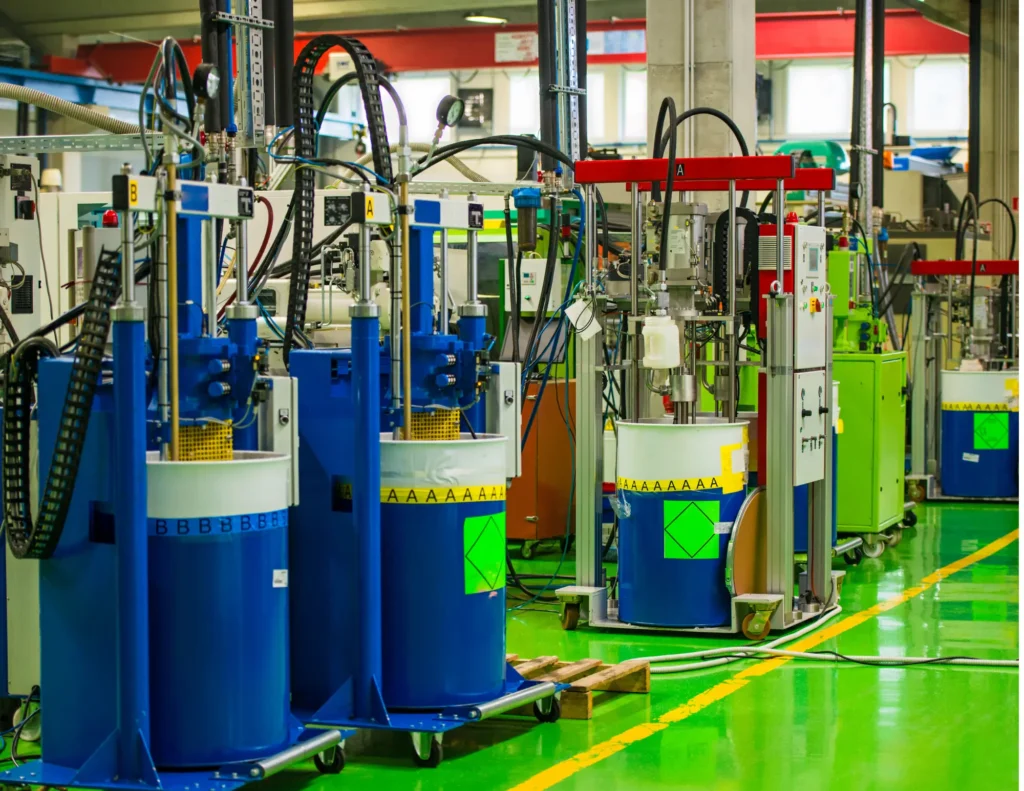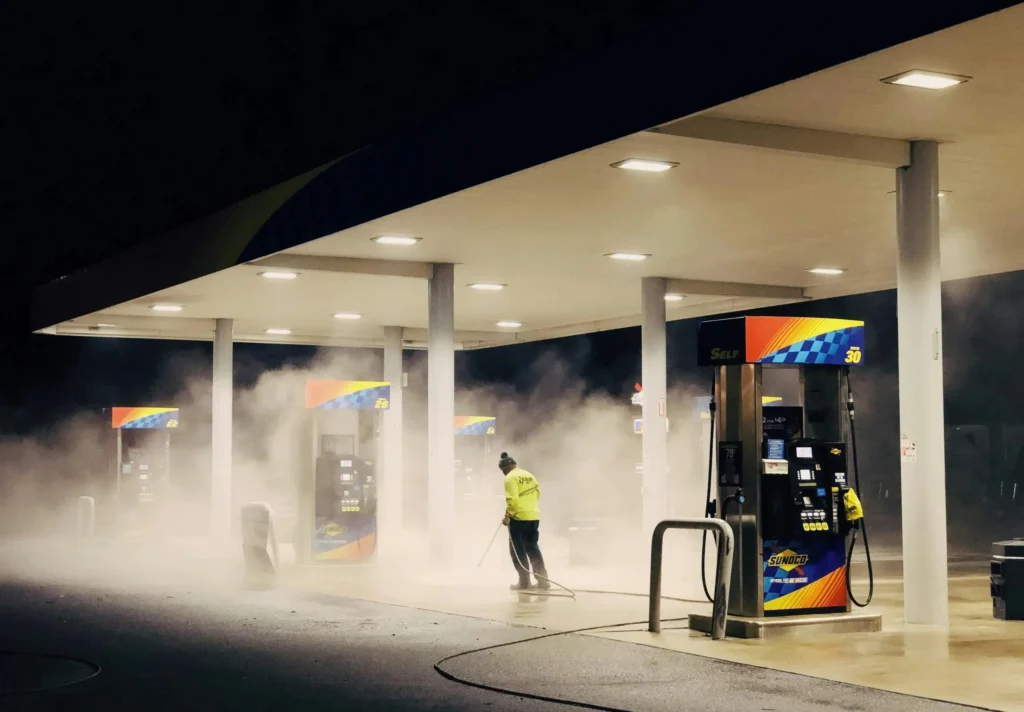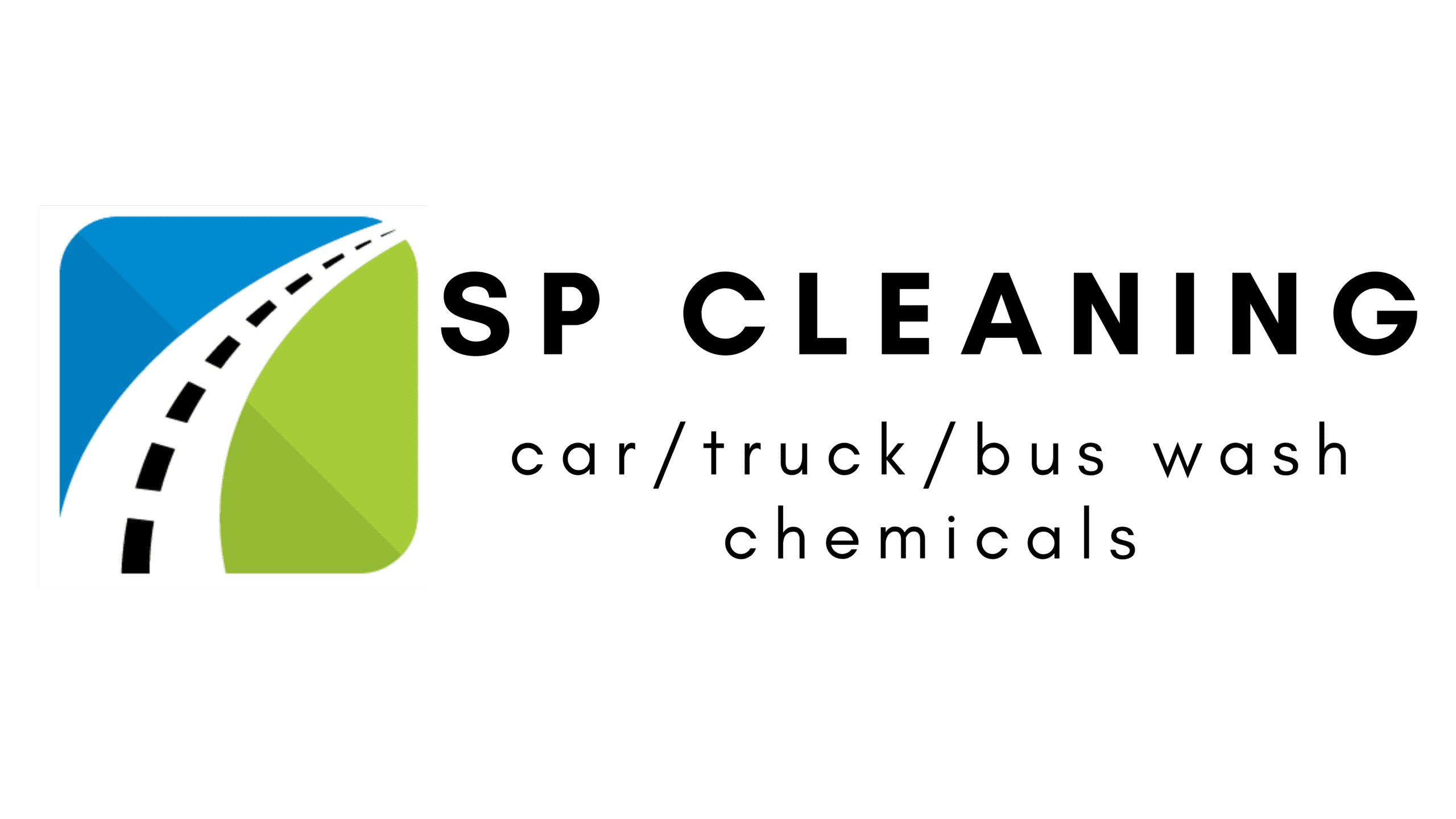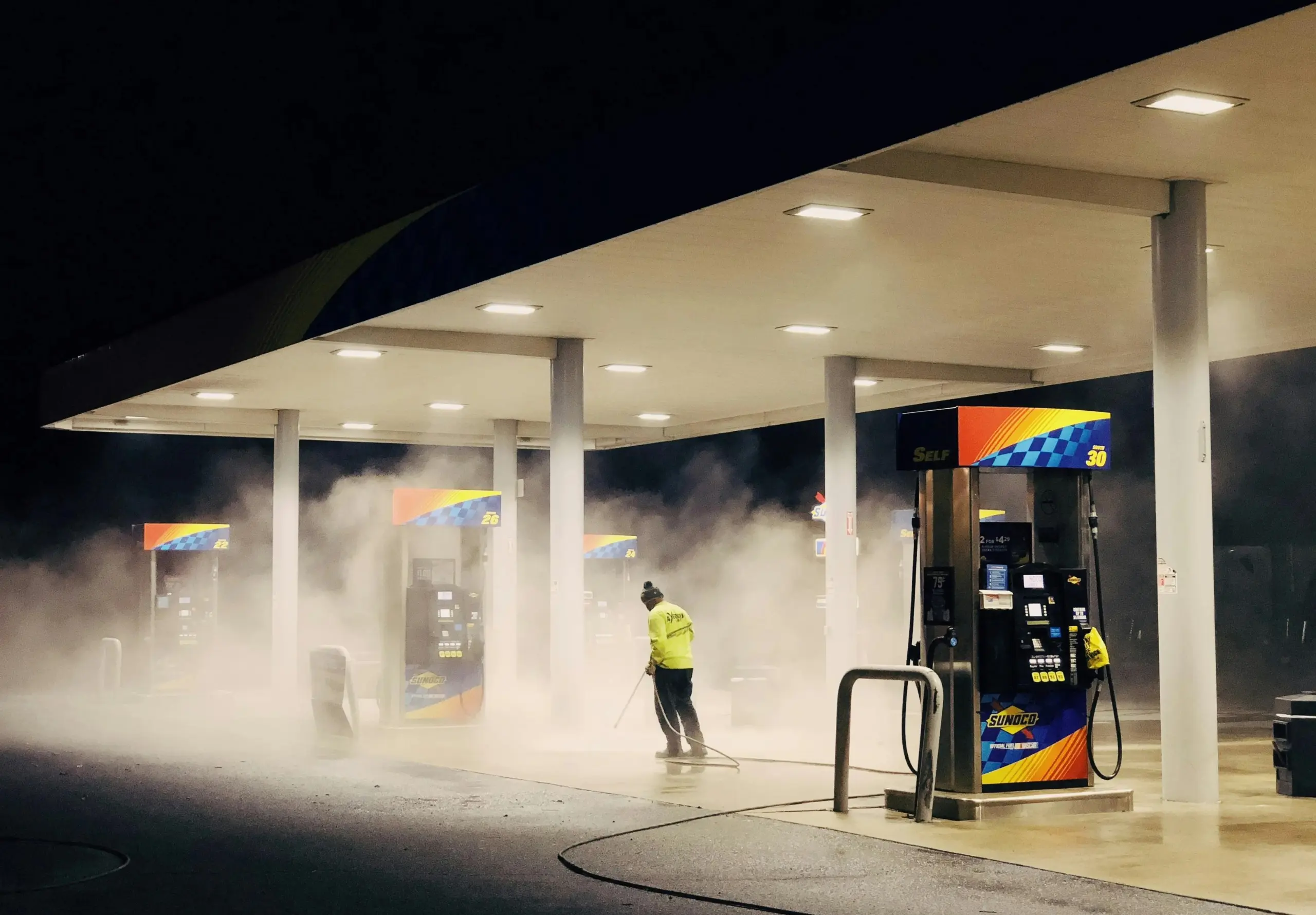Did you know that over 70% of homeowners struggle with stained concrete? If you’re one of them, you’re in the right place. Cleaning concrete doesn’t have to be a headache.
Today, We will discuss what chemicals clean concrete effectively. From common household items to specialized products, we’ve got you covered. This guide will help you choose the best options for sparkling clean surfaces.
Key Takeaways
- Know Your Concrete: Understand the type of concrete you have before choosing a cleaning method.
- Effective Chemicals: Use chemicals like muriatic acid, trisodium phosphate, and degreasers for effective cleaning.
- Choose Wisely: Pick the right chemical based on the type of stain and concrete condition.
- Proper Application: Follow correct techniques like scrubbing and pressure washing for best results.
- Safety First: Always wear protective gear when handling strong chemicals.
- Regular Maintenance: Keep your concrete clean by performing regular maintenance to prevent tough stains.
1. Understanding Concrete Cleaning

1. Assessing Cleaning Needs
Identify the type of stain on your concrete. Grease, oil, and general dirt need different chemicals. Check the size and severity of the stain. This helps determine how much solution you need.
Consider the porosity of the concrete surface. Porous surfaces may need more cleaner. Non-porous surfaces might clean up faster.
2. Types of Cleaning Chemicals
Several chemicals clean concrete well:
- Soda
- Detergent
- Vinegar
- Baking soda
- Concrete cleaner or degreaser
- Bleach
Eco-friendly options include vinegar and baking soda. They are safe for the environment. Alkaline cleaners work best for grease and oil stains. Acidic cleaners remove rust or mineral deposits. Neutral cleaners handle general dirt.
3. Preparing for Cleaning
Gather all needed tools first:
- Scrub brushes
- Sponges
- Mops
- Buckets
- Protective gear
Dilute chemicals as per instructions. This ensures safety and effectiveness. Sweep or vacuum the concrete area to remove loose dirt before applying any cleaner.
2. Effective Cleaning Chemicals

1. Using Soda
A Soda reacts with grease on concrete. The soda’s ingredients break down the grease, lifting stains.
Apply soda to the stain and let it sit for 15 minutes. Scrub with a stiff brush. Rinse well with water.
Dispose of used soda properly. Avoid pouring it into drains to prevent harm to the environment.
2. Detergents for Concrete
Detergents break down grease molecules. This makes them easier to scrub away.
Mix detergent with hot water for a potent cleaner. Use a stiff-bristled brush to scrub the surface. Rinse thoroughly after cleaning.
3. Vinegar and Baking Soda
Prepare a solution of vinegar or baking soda for cleaning. These agents are eco-friendly and non-toxic.
Spray the solution on the stain and let it sit for 10 minutes. Scrub gently, then rinse with water.
4. Degreasers and Cleaners
Alkaline soaps in degreasers clean concrete effectively. They work by breaking down oily stains.
Choose a cleaner based on the stain’s oiliness and the concrete’s porosity. Avoid using these cleaners on non-porous surfaces or old stains.
5. Applying Bleach
Dilute bleach correctly for safe use on concrete. Proper ratios ensure safety and compatibility with surfaces.
Wear protective gear and ensure good ventilation when using bleach and do dispose chemicals properly. Rinse thoroughly with clean water after bleaching to remove residue.
3. Choosing the Right Chemical

1. Matching Chemical to Surface
Always test a small, hidden area of concrete before applying any chemical;
If you use chemicals alot, this will be a good read for you, tips to use pressure washing chemicals and chemicals not to mix.
This helps avoid damage. The pH level of the cleaning solution should match the concrete surface. If not, it might harm the concrete.
Different types of concrete need different chemicals. Sealed, painted, or stamped surfaces each have unique needs. Choose wisely to protect your concrete.
2. Stain Specific Solutions
Grease, oil, rust, and mildew are common stains. Each requires a specific chemical cleaner. For grease and oil, use degreasers. Rust removers work best for rust stains.
Mildewcides can handle mildew effectively. Consider the age and cause of the stain when choosing a cleaner. Older stains may need stronger solutions.
3. Safety Considerations
Always read and follow safety instructions on chemical labels. Wear gloves, goggles, and masks for protection. Mixing different chemicals can be dangerous. It may cause harmful reactions.
4. Application Techniques

1. Proper Mixing
Mixing chemicals correctly is crucial. Always follow the manufacturer’s guidelines. Use clean containers to avoid contamination. Measure the chemicals precisely.
For diluting concentrated chemicals, check the recommended ratios. This helps prevent damage to the concrete and ensures safety. Some solutions have a specific shelf life. Mix only what you need.
2. Application Methods
Different methods work for different areas. Spraying is good for large surfaces. Mopping works well for smaller areas. Spot treatment targets stubborn stains.
Apply the cleaner evenly. This prevents streaks and pools of solution on the concrete. Agitate the cleaner with scrubbing brushes or pressure washers for deeper cleaning.
3. Rinse and Repeat
Rinsing is essential after applying any chemical cleaner. Use clean water to wash away residues. This step protects the concrete from damage.
One cleaning isn’t enough. For tough stains, repeat the process. Allow the concrete to dry fully before using it again. Drying times can vary based on weather conditions.
5. Maintenance Tips
1. Regular Cleaning Schedule
Establish a routine cleaning schedule for concrete. This helps maintain its appearance and longevity. Periodic deep cleaning is more effective than reactive cleaning. It addresses spills and stains before they set in.
Seasonal cleaning tips are useful too. In winter, remove salt to prevent damage. In spring, clean off pollen that can stain the surface.
2. Protective Coatings
Protective coatings like sealers enhance stain resistance. They make cleaning easier. Select the right type of sealer based on location and use. Outdoor concrete needs different sealers than indoor surfaces.
Prepare the surface properly before applying the sealer. Clean it thoroughly and let it dry. Apply the sealer evenly and let it cure for the recommended time.
3. Addressing Spills Quickly
Act fast when spills happen. This stops them from soaking in and making stains. Quickly dab up spills without spreading them around. Have a simple cleaning kit nearby for quick cleanups. Include things like a mop, absorbent cloths, and mild cleaners. This way, you’re always ready to deal with spills right away.
6. Summary
You’ve learned how to clean concrete. From choosing the right chemicals to applying them correctly, you’ve got it all. Now, let’s keep your concrete looking great with easy maintenance tips. Ready to get started? Try out these cleaning methods and see the results. Have any questions or advice? Share them with us! Your concrete should look its best, so make it shine.
7. Frequently Asked Questions
1. What chemicals clean concrete effectively?
Concrete cleaners, often used in bulk cleaning chemicals, contain sodium hydroxide, potassium hydroxide, and citric acid. You can also buy pressure washing chemicals that include wide range of chemicals for different surfaces and use. These chemicals break down grime and stains.
2. What should I spray on concrete before pressure washing?
Apply a degreaser or concrete cleaner. This pre-treatment helps loosen dirt and stains, making pressure washing more effective.
3. Are there eco-friendly options for cleaning concrete?
Yes, try using a mixture of baking soda and vinegar. It’s an environmentally friendly alternative to harsh chemicals.
4. How do I choose the right chemical for my concrete?
Consider the type of stain and surface condition. For oil stains, use a degreaser. For general grime, a mild detergent works well.
5. Can I use bleach to clean concrete?
Yes, but be cautious. Bleach can remove tough stains but may also damage nearby plants and discolor surfaces.
6. How often should I clean my concrete surfaces?
For best results, clean your concrete surfaces at least once a year and if you are a pressure washings service provider, this is. must read for your price pressure washing service. High-traffic areas might need more frequent cleaning.
7. Is it necessary to seal the concrete after cleaning?
Sealing isn’t mandatory but highly recommended. A good sealer protects against future stains and extends the life of your concrete.



